
It's summer right now and berries are ripe for the picking in our neck of the woods. We took a trip out to a friends farm and nabbed several gallons of blackberries for our latest creation, a robust blackberry porter.
To be honest, this is purely experimental. We found a porter recipe online that looked good to us and brewed it with the intention of adding blackberries. We have no idea how this one is going to turn out so what we'll do is ferment the batch of porter in a large carboy then split it into two 2.5 gallon (9.5 liter) fermenters and add blackberries to one of them during secondary.
We filmed the entire process, which is below. Here's the brewing process. More videos and the recipe are further down.
Water
Beginning water volume: 7.74 gallons (29.3 liters). We didn't adjust chemistry.
Malts
- Pale Malt
- Maris Otter
- Crystal 60
- Crystal 120
- Chocolate Malt
- Carafa II
- Melanoiden Malt
Mashing
We mashed at 152F (66.7C) and opted to skip the recommended 168F (75.5C) mash out due to time constraints. Gravity targets are in benchmark section below.

Mashing in

Stirring mash to remove any doughballs

The Boil
- Columbus hops at the boil (60 minutes)
- Whirlfloc at 15 minutes,
- and Willamette at 15 minutes as well

Wort boiling in our kettle with the hop silo attached
Fermentation
We added an English Ale yeast (White Labs WLP002) and fermented in the high 60's (~19.4C) during primary.

We made sure to make a yeast starter for this beer
Benchmarks
- Pre-boil gravity 1.054
- Post boil volume 6.04 gallons
- Post-boil gravity 1.063
- Final volume (after fermentation) 5.50 gallons
Before brewing, we actually picked some blackberries. Why blackberries? They were in season and we had a line on a whole bunch of them. Our buddy Jack took us to a remote section of his farm and we picked away. Here's the video:
After primary fermentation finished, we added 2.5 pounds (1.1 kg) of blackberries to half of our batch of robust porter (we kegged the other half with no modifications). The reason we split the batch was because it's best to add a pound of berries per gallon to allow the flavor of the fruit to come through in the final product and we only had 2.5 pounds of berries! This worked out well because half of our batch was 2.5 gallons.

Emmet picking wild blackberries

It took a while to pick this many blackberries
The procedure for adding the berries is as follows.
- Freeze the berries to kill (most of) the wild yeast / bacteria that undoubtedly is living on the fruit.
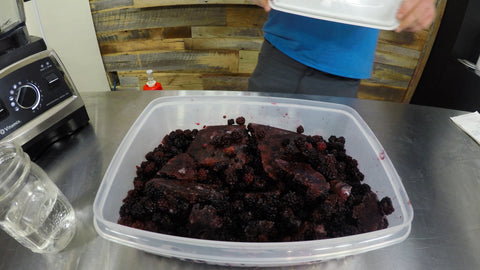
- Put the fruit in a blender (that has been sanitized with starsan) and add some sterile (boiled) water.
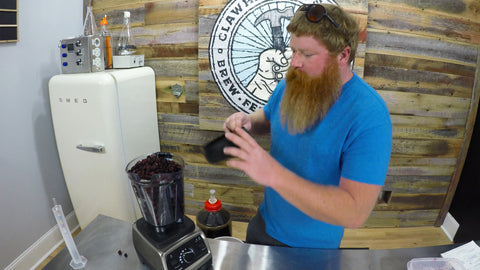
- Blend the berries to make a puree.
- Rack the beer to a secondary fermenter and add the berries.
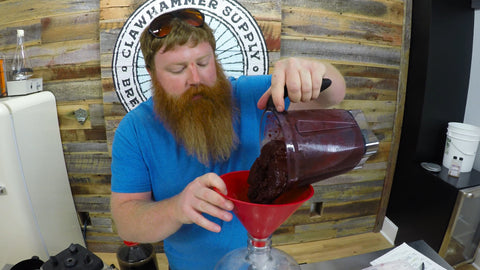
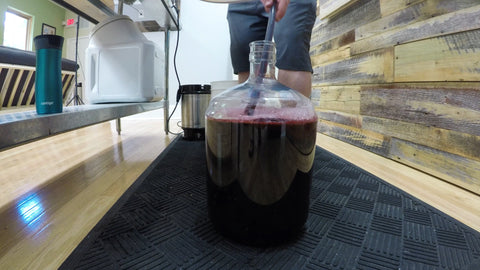
Here's a video of us completing all of these steps:
After infusing the secondary fermenter with the berries we left it sit for another week at about 70 degrees (21.1C) to let things mellow out. This probably reactivated the yeast, as there was likely some fermentable sugar in the berries. After secondary fermentation was complete we did a 24 hour cold crash and then racked the beer to a keg. Pro tip, use a cheese cloth to filter out any pulp and seeds from the berry juice while racking into the keg.

We put a mesh bag into our keg before racking
In fact, here's the entire kegging video:
Once our two porters were carbonated, we tasted both to see how they turned out. The first one we tried was the porter with blackberries. We had no idea how a porter infused with wild blackberries would turn out, but upon tasting it we were very satisfied. We could immediately taste how clean our blackberry porter was, so there was fortunately no contamination and no off-flavors. When we filmed the tasting video below, our blackberry keg was almost empty. We loved this beer and recommend you try making a wild fruit beer as well.
Our porter with no blackberries was much more chocolatey, we described it as almost an Ovaltine flavor with a bit of sweetness to it. The porter with no blackberries definitely turned out great, but it wasn't nearly as surprising as our porter with blackberries.









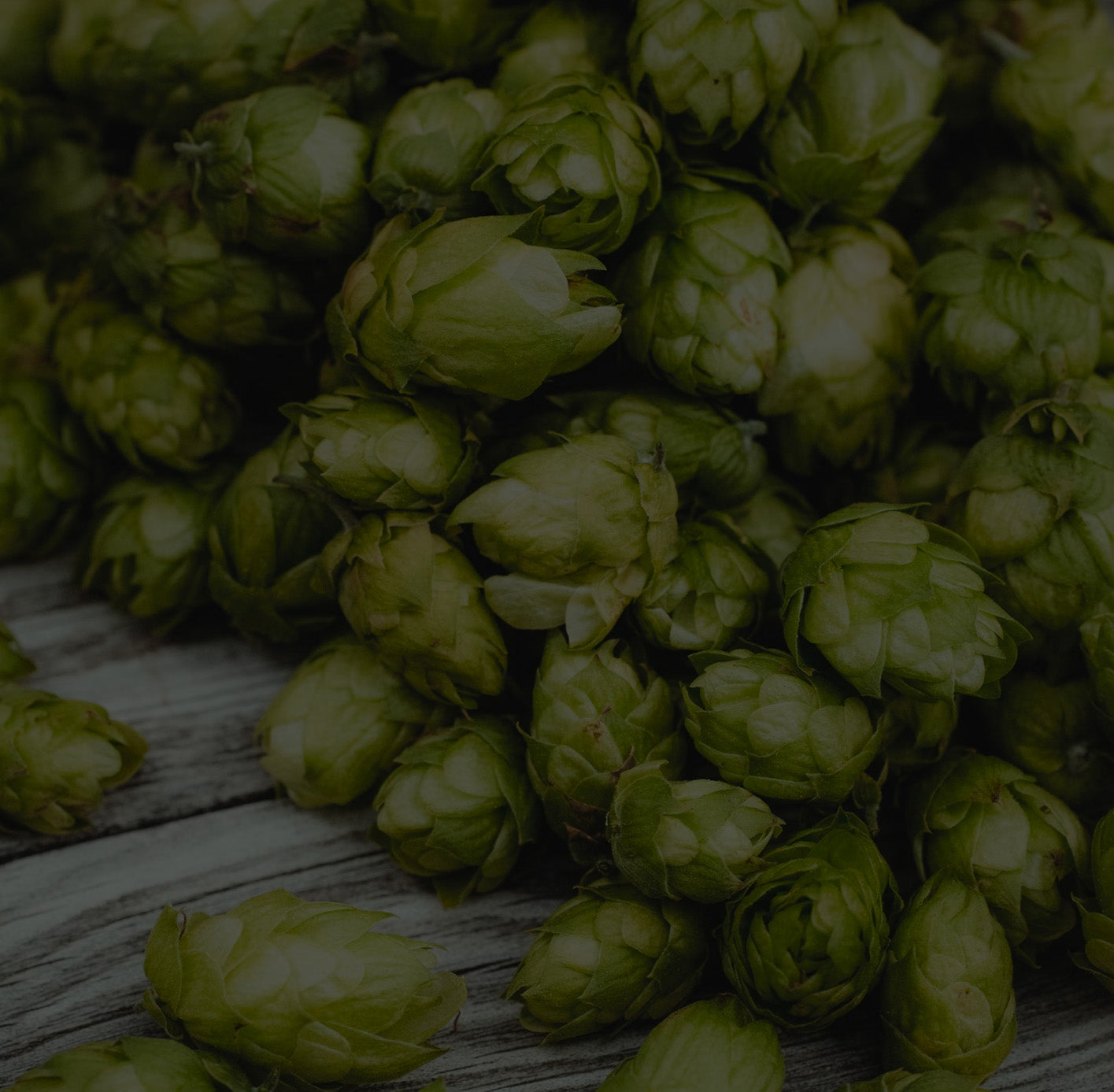
Leave a comment